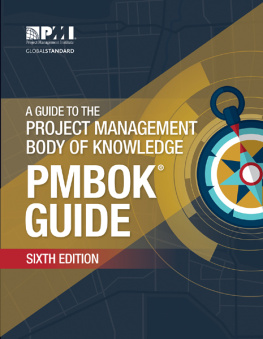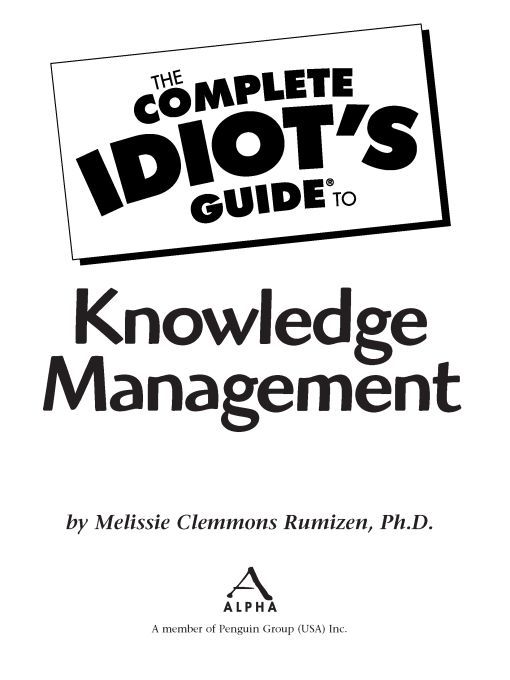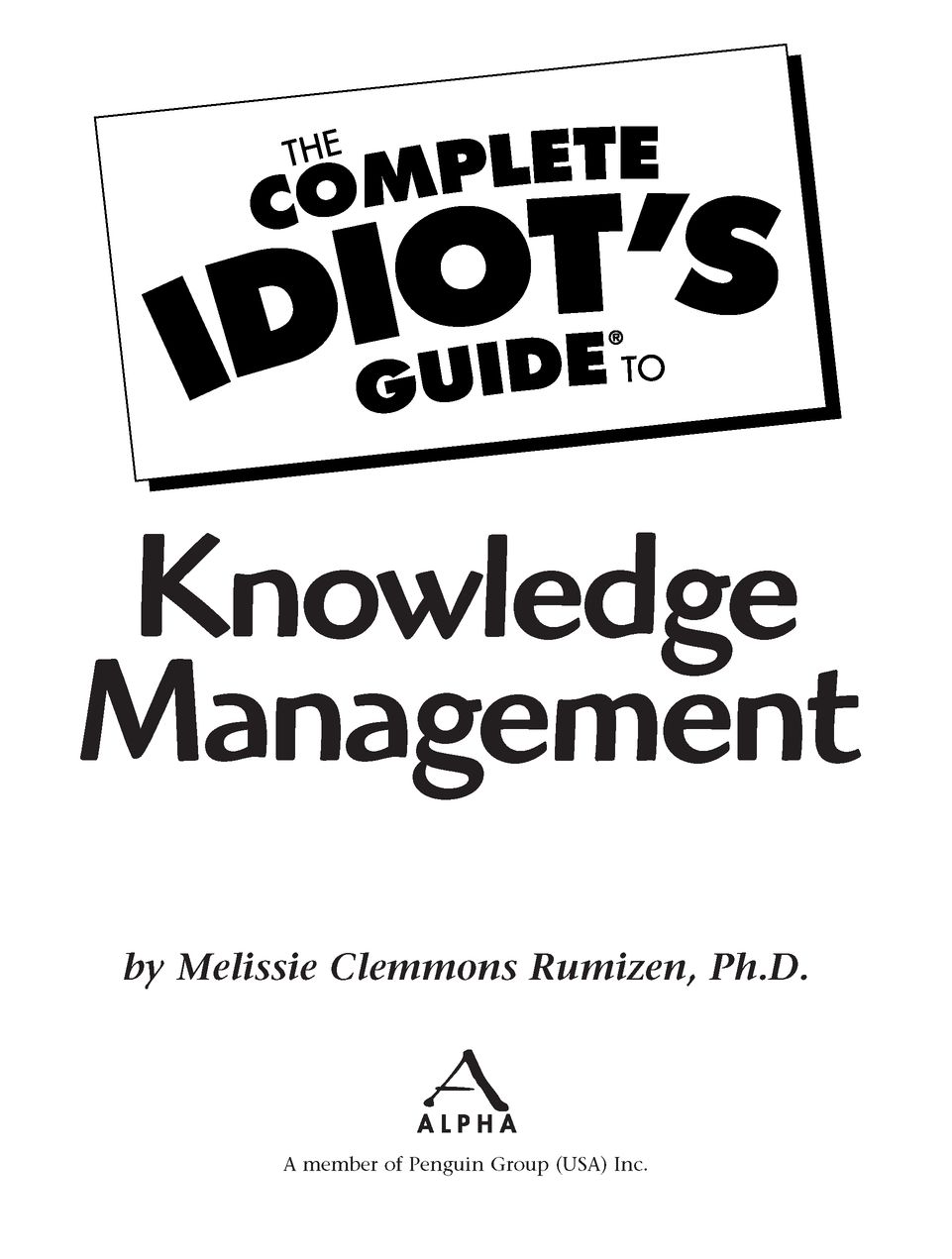Table of Contents
Publisher
Marie Butler-Knight
Product Manager
Phil Kitchel
Managing Editor
Jennifer Chisholm
Senior Acquisitions Editor
Renee Wilmeth
Development Editor
Joan D. Paterson
Production Editor
Katherin Bidwell
Copy Editor
Amy Borrelli
Illustrator
Jody Schaeffer
Cover Designers
Mike Freeland
Kevin Spear
Book Designers
Scott Cook and Amy Adams of DesignLab
Indexer
Amy Lawrence
Layout/Proofreading
Mary Hunt
Kimberly Tucker
Foreword
Knowledge management has been easily dismissed by some as just the latest management fad. Dilbert has lampooned it. Untold software vendors slap the label of KM on their packages and tout miraculous cures for all our knowledge failings. Yet, behind all the jargon and the hype, we find companies engaged in serious efforts to manage their most precious assettheir working knowledge.
Managing knowledge is clearly one of the new fundamentals for success in the new economy. It is a tough job and few organizations do it well. Knowledge management involves many complex organizational issues; simplistic approaches will not work, nor will throwing technologies at people somehow magically make knowledge happen.
Written by an expert practitioner, this book cuts through the lingo that has littered the knowledge management field. Drawing upon years of experience, Melissie Clemmons Rumizen debunks some widely held beliefs and puts into perspective those that hold true under fire. She provides a solid review of the knowledge-based ideas and practices that have most influenced how companies function. Both those new to the questions and those seeking to improve their current efforts will enjoy this practical, savvy guided tour through the eclectic mix of disciplines, concepts, methods, and approaches that form the field of knowledge management.
Far too many people working in KM obsess over creating the perfect approach. The important thing is to start asking the knowledge questions and be willing to experiment in various ways. Rumizen shows us how to do this by focusing on common-sense principles and sharpening our senses to sniff out the knowledge value to the business.
Rumizen covers a wide range of related topics, ranging from how to work with information technology to the fine points of a communications strategy. The most important of these topics is dealing with an organizational culture and managing change. She quite rightly assesses that challenge is the biggest potential barrier and offers practical tips for meeting that challenge.
This is not an unwieldy academic tome; Rumizen follows the dictum of Oscar Wilde to treat unimportant things seriously and important things lightly. It is good to remember that humor and humility serve any change effort well, including becoming more knowledge-focused.
Leading a knowledge management effort within an organization is a sometimes thankless job and it requires a jack-of-all-trades. Rumizen zeroes in on the skills needed, the expertise required, and above all the mind-set demanded. Successful initiatives in KM require imagination, daring, persistence, an entrepreneurial spirit, and a willingness to occasionally be outrageous and outspoken. You must be prepared to win bigor fail greatly. But the potential prize for your organization matches the size of the challenge.
Managing knowledge must become part of how every organization does business. Those who fail to manage what they know simply cannot be serious players in the new business environment.
Laurence Prusak
Executive Director, IBM Institute for Knowledge Management
Mr. Prusak is the co-author of several books on knowledge management: In Good Company: How Social Capital Makes Organizations Work (with Don Cohen), Harvard Business School Press, 2001; Working Knowledge: How Organizations Manage What They Know (with Thomas H. Davenport), Harvard Business School Press, 1997; and Information Ecology: Mastering the Information and Knowledge Environment (with Thomas H. Davenport), Oxford University Press, 1997. He is also the editor of Knowledge in Organizations, Butterworth-Heinemann, 1997.
Introduction
Decades ago, Peter Drucker began writing about the knowledge worker. Over the last decade, however, more and more attention has been paid to the true engine of todays organizations: the brainpower of employees.
Saying that is simple, but managing an organization so that it best taps the knowledge of its employees isnt so simple. For one thing, employees must be given what they need to do a good job: leadership, processes, a supporting organizational culture, information technology, measurement, and leadership. In addition to the leadership of the organization, a new role has emerged in many organizations to lead the knowledge management charge: the Chief Knowledge Officer.
The purpose of this book is to look at the various components needed to manage knowledge in an organization. Doing knowledge management right is much like juggling many balls in the air at the same time. It requires a good bit of skill, not to mention aplomb. But it can be done, and those that do it well see the payoff as they begin to take advantage of the vast store of know-how possessed by employees. This book will help you to learn how to do it.
Part 1, Exploring the Oxymoron, gives you the foundation you need to understand knowledge management and what people are doing in the field. It explains the rationale for knowledge management, covers popular theoretical models, gives some basic definitions, and details case studies of two successful knowledge implementations. It also explains the new role in many organizations to lead knowledge management, the Chief Knowledge Officer.
Part 2, Getting Started, looks at how to begin implementing knowledge management. This process includes selecting a strategy, a strong suggestion to start with a pilot, and how to build an infrastructure to support the implementation. Several chapters also look at specific approaches to include what I call the killer application, communities of practice.
Part 3, Cant Live with IT; Cant Live Without IT, looks at another critical success factor for knowledge managementinformation technology. The first chapter explores a critical partner and ally, the Chief Information Officer. Other chapters give some fundamentals such as intranets, collaborative technology, and portals.
Part 4, The Showstopper of Culture, looks at what knowledge management tries to changehow we do things around here. It also includes several chapters on change management, a discipline for successfully bringing about organizational change.
Part 5, Keeping Score, focuses on what is often the Achilles heel of knowledge managementmeasurement. This part opens with a chapter looking at some general guidelines for measures and then moves to three chapters giving specific methodologies.
Part 6, Settling In for the Long Haul, looks at some pitfalls you might encounter along the way and how to scale up. The last chapter looks at personal knowledge management, knowledge management for you on your own.










